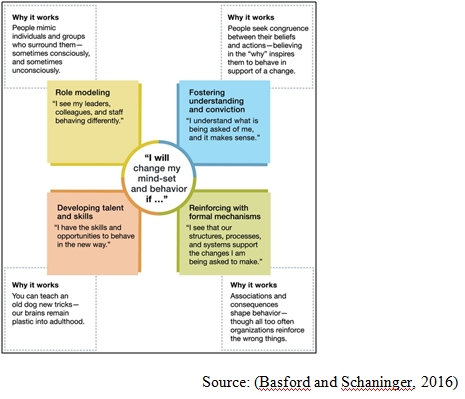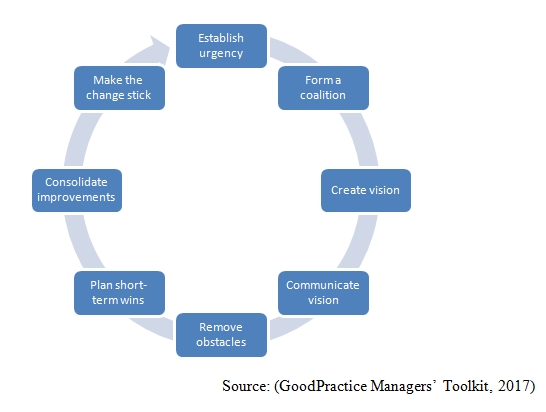Change management is having its moment.
As Schaffer (2017) argues, all management is change management. The idea of change acting as a disruptor to an organisation should perhaps be reviewed. Rather than a negative association, change should be framed as a central and normal part of any leader or managers role. In order to influence employees and help them adjust to any change process, a useful framework is discussed by Basford and Schaninger (2016). The influence model framework and the associated ‘four building blocks of change’ help to frame any change initiative in a coherent and understandable way:

Of course, there are several other theories that are worthy of consideration. Presenting a road map for successful change, John Kotter’s eight step model is widely known (GoodPractice Managers’ Toolkit, 2017):

Data science is becoming a reality for change management
The above models provide a structure regarding the implementation of change but what about the preparation? In today’s operating environment, how do organisations ensure that they have the correct supports in place to manage change when the time comes? Tushman et al (2017) present a very interesting argument that the organisations best prepared to adopt and implement change are those collecting data on a regular basis. In addition, they outline five steps that organisations should take to ensure the capture of this data.
Here are some recent titles on change management which can be borrowed from the Knowledge Centre Library.
Effective change management and data science - find out more! http://bit.ly/2hzqew1 Share on X